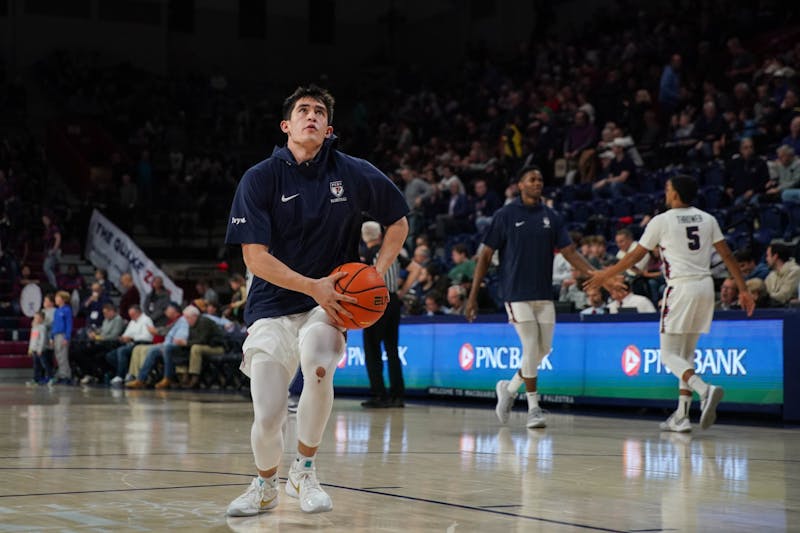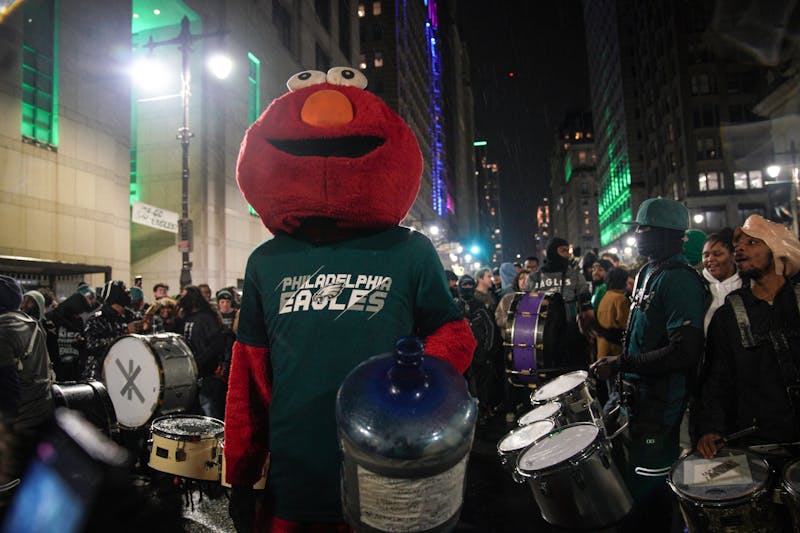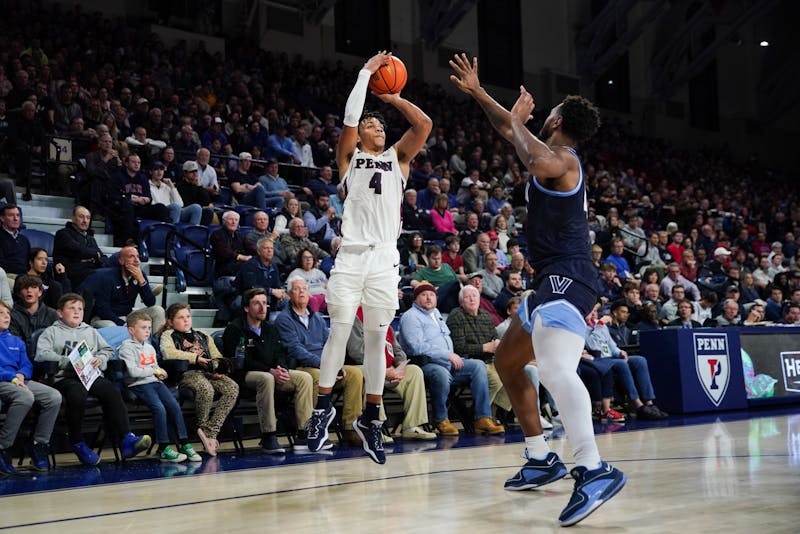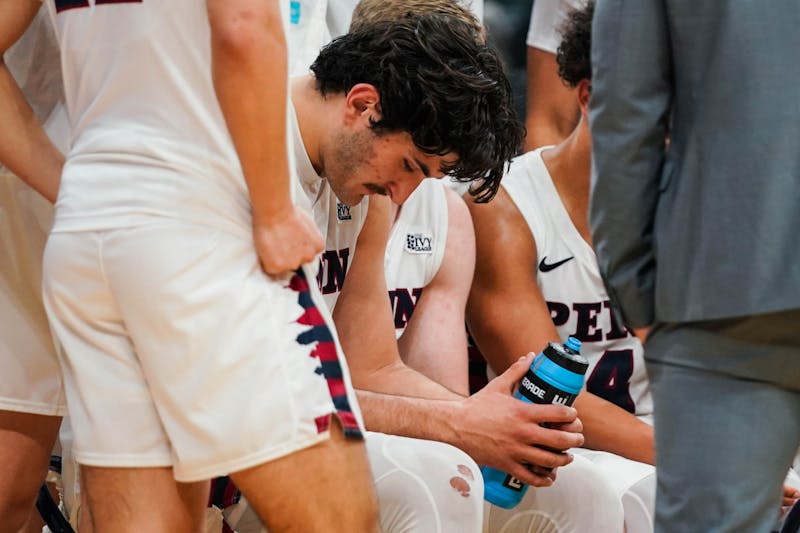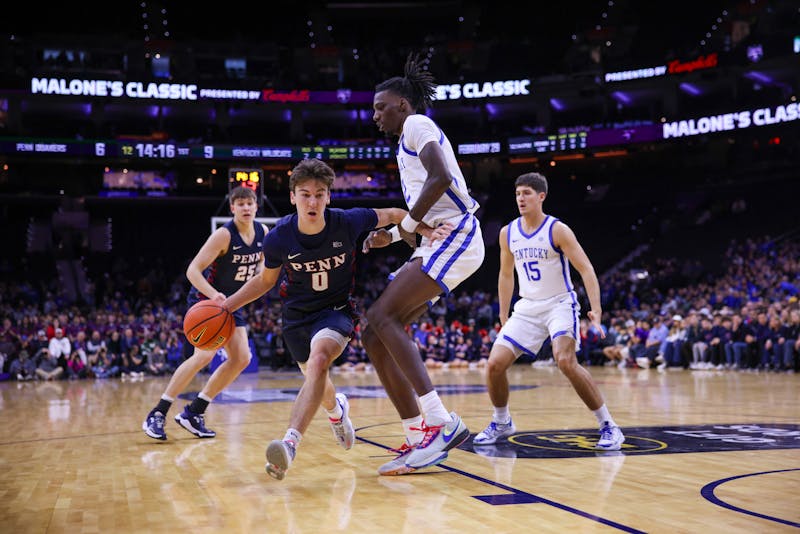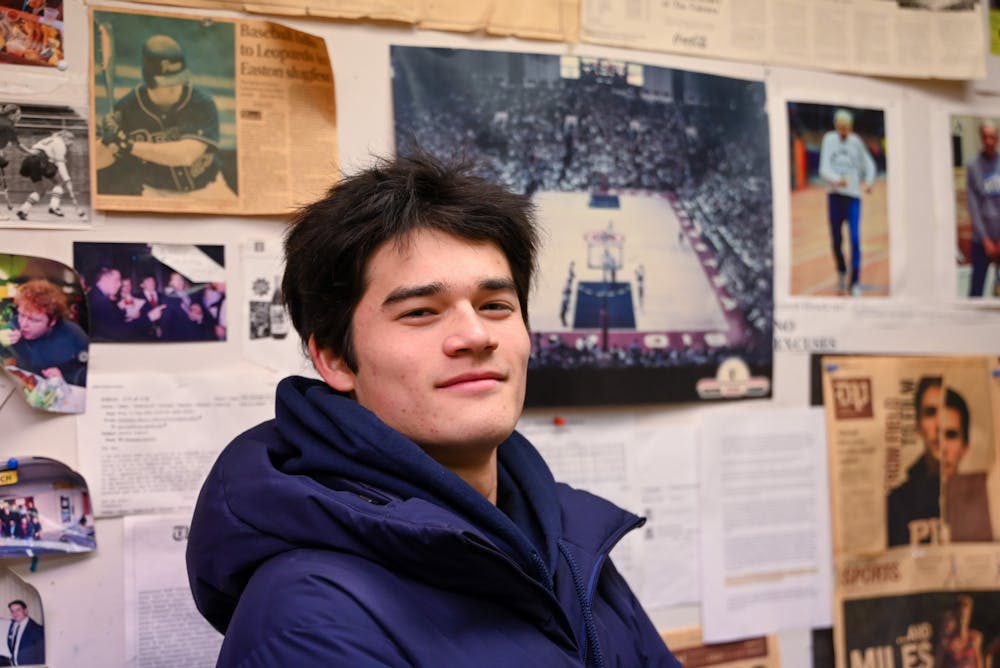
Basketball is a melodic sport. The steady dribble of the ball provides a drumline, the symphony of squeaking sneakers mimics a harmony, and the “oohs” and “aahs” of the spectators supply vocals. It is difficult to find another sport where music is as integral to the game day experience as it is to basketball. From warm-up playlists handpicked by players to iconic themes played after wins, it is impossible to deny the connection between basketball and music. At the Palestra, this relationship is evident and spearheaded by a student DJ, Ryo Lindsey.
Ryo was born into a family of musicians. His father is a composer and pianist for the Swarthmore Ballet Theater. Additionally, one of his sisters attends the prestigious Curtis Institute of Music while another is a ballet dancer. Growing up, Ryo played the piano and trumpet but concedes that he “wasn’t very good at playing instruments.” For Ryo, DJing and producing have allowed him to flex his musical muscles.
Ryo began DJing just one year ago. Like most students, Ryo found himself at his fair share of frat parties. At these parties, he admitted, he was generally unimpressed with the music selection. Despite not having any previous experience DJing, Ryo felt he could do better than the DJs he heard around campus by simply playing his “own stuff.” Before working at the Palestra, Ryo got his start DJing for fraternities on campus. Through performing at various events ranging from formals to house parties, Ryo found that a successful DJ does not just play their catalog of favorite songs. Instead, he or she must quickly adapt and connect with his or her audience.
DJing a basketball game differs drastically from a frat party. However, the goal for both is the same: engaging and involving the audience. For fraternities, Ryo plays the music college students want to hear. During these events, Ryo reaches into his bag of pop music and a mixture of hits from the 2000s and today. When DJing at the Palestra, he has to match the energy of both the fans and the players on the court.
For the spectators, Ryo knows first-hand how music can add to the excitement of a sporting event. Raised in Philadelphia, Ryo has fond memories of going to 76ers games and being mesmerized by not just the game, but the presentation the organization puts on. Ryo believes that the DJ at Sixers games has a responsibility to hype up the home crowd with dynamic, boisterous music. As opposed to mundane, music-less commercial breaks, this selection of music further engages the fanbase. For Penn Basketball, Ryo pointed to t-shirt tosses that occur during breaks in game action. For these tosses and other activities put on by Penn Athletics, Ryo provides the much-needed soundtrack. The combination of Ryo’s music stimulates those in the stands who would likely be scrolling on their phones if not provoked by the high-energy music.
“I think music is a really, really big part of [the game day experience] just because there's a lot going on during the game at all times,” Assistant Marketing Director Kevin Nguyen explained. “And you just never know what's gonna happen next.”
Ryo also pays selective attention to what the players want to listen to. At the beginning of every season, players on both the men’s and women’s basketball teams put together a list of songs they would like to be played during warmups. It is the responsibility of Ryo to mix these songs to craft the correct atmosphere in the Palestra. His primary goal in using these songs is to hype up the players with familiar music. Ryo relishes in the overwhelmingly positive on-court reactions to his DJing by the Penn players when their favorite songs are played for all to hear.
“The team all contributed to making our pregame playlist for the season,” Junior guard Reese McMullen explained. “I personally think the playlist is great. I think music helps us all lock in but also keeps us loose prior to tip off.”
Inversely, the players have had an impact on Ryo’s own music preferences. He is being routinely introduced to new music through the players’ warm-up suggestions. When not performing, Ryo listens to a combination of house music and music from the 70s to 80s, which he describes as the “golden age” of music. Since beginning at the Palestra, rap music has also slowly creeped into his everyday selection due to suggestions from the players.
There have been critics of the increasing presence of music during basketball games. One of these critics who have vocalized their displeasure is Golden State Warriors coach Steve Kerr. Kerr, after suffering a loss to the Phoenix Suns, compared the home of the Suns to a “South Beach Club” as he “couldn’t hear anything” in the arena but “thumping techno club music.”
When asked about Kerr’s quote, Ryo pointed out that the Warriors were the away team, so the Suns's DJ was not pandering to their music taste. “If the Suns like that type of music, their fans love the music, let them play it.” Going further, Ryo expressed that he finds it important that every team has its own musical interests that are fulfilled.
This, of course, applies directly to his responsibility to cater to the Penn basketball players when DJing.
“If you come to the Palestra, I'm gonna be DJing,” Ryo said. “You can’t be on the opposing team asking me to play whatever songs you like, I'm going to be playing what my players want.”
Along with working at the Palestra, Ryo continues to DJ prominent events on Penn’s campus and throughout Philadelphia. His Instagram provides updates on his future gigs and showcases his mixes.
The Daily Pennsylvanian is an independent, student-run newspaper. Please consider making a donation to support the coverage that shapes the University. Your generosity ensures a future of strong journalism at Penn.
Donate







